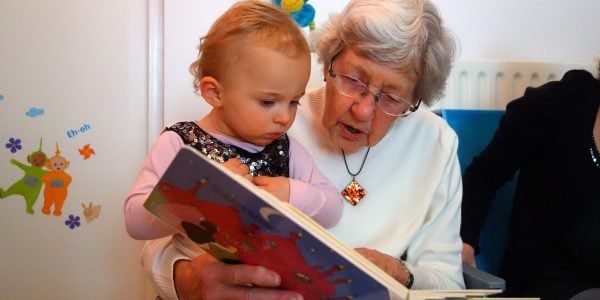-
Dr Jean-Baptiste PingaultUniversity College London
-
Professor George PloubidisUniversity College London
-
Professor Frank DudbridgeUniversity of Leicester
-
Professor Robert PlominKing’s College London
Project overview
This project will examine the intergenerational transmission of educational underachievement, using novel methods to differentiate between genetic and environmental factors.
Parents’ education is the strongest predictor of children’s educational achievement. In the Plan for improving social mobility through education (2017), the Department for Education highlighted the importance of parental education in social mobility, with the transmission of underachievement leading to an intergenerational cycle of social inequalities. If this cycle is to be broken, it is necessary to understand the chain of events underlying the relationship between parents’ and children’s achievement. Interventions can only succeed if the relationship between parents’ and children’s achievement is at least partly environmentally transmitted rather than genetically transmitted. This project will build on recent pioneering work by this team of researchers to integrate genetic research into the social sciences and educational research. Previous research has shown that polygenic scores (scores summarising the effects of DNA variants) can explain over 12% of the variance in children’s educational achievement. However, polygenic scores in children can also reflect social influences and environmentally transmitted generational effects, such as the impact of the home environment. This project will establish causality and identify preventable risk factors.
The research will involve secondary analysis of two longitudinal studies – the Millennium Cohort Study and the Avon Longitudinal Study of Parents and Children – to test and quantify the environmentally-transmitted effect of parental education on children’s educational achievement. The researchers will carry out a systematic review and meta-analysis of the existing evidence. The research will use two novel methods utilising polygenic scores to separate environmentally-transmitted and genetically-transmitted effects. The first method will assess the effects of maternal and paternal polygenic scores on the child’s achievement, controlling for the child’s own polygenic score, in order to measure the environmentally-transmitted causal effect of the parent’s education. The second method will calculate untransmitted polygenic scores for each parent, i.e. scores of genetic variants not transmitted to the child. If untransmitted polygenic scores predict the child’s educational achievement, it can by definition only be through environmental transmission. The final stage of analysis will investigate which factors mediate the relationship between parents’ untransmitted polygenic scores and children’s educational achievement. These will include children’s cognitive and non-cognitive skills, and aspects of the home environment such as whether the parent reads to the child or helps with homework.
The findings from this project will provide important evidence for what constitutes a learning-friendly home environment, informing effective interventions at multiple stages in children’s development. To maximise impact, the researchers will work with the Nuffield Foundation, the Early Intervention Foundation and the Department for Education and other organisations interested in social mobility. The researchers will deliver a policy lab and documents for key professionals, as well as disseminating the findings through academic journal articles, conferences and a final public report.






































